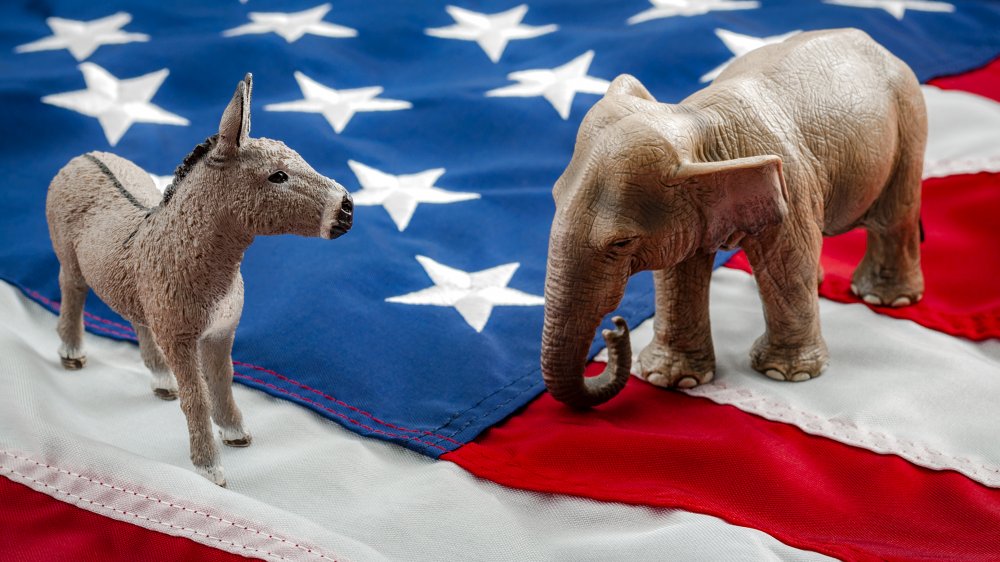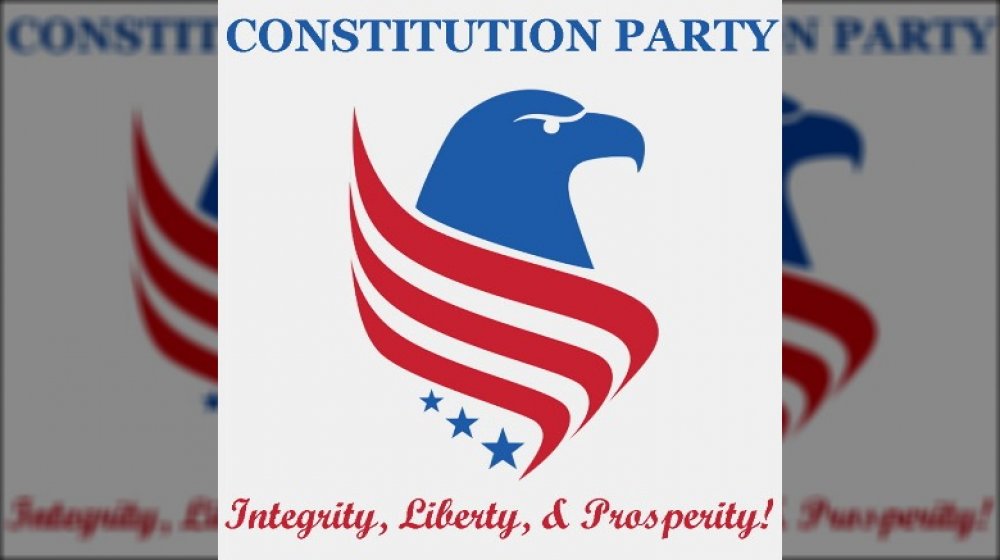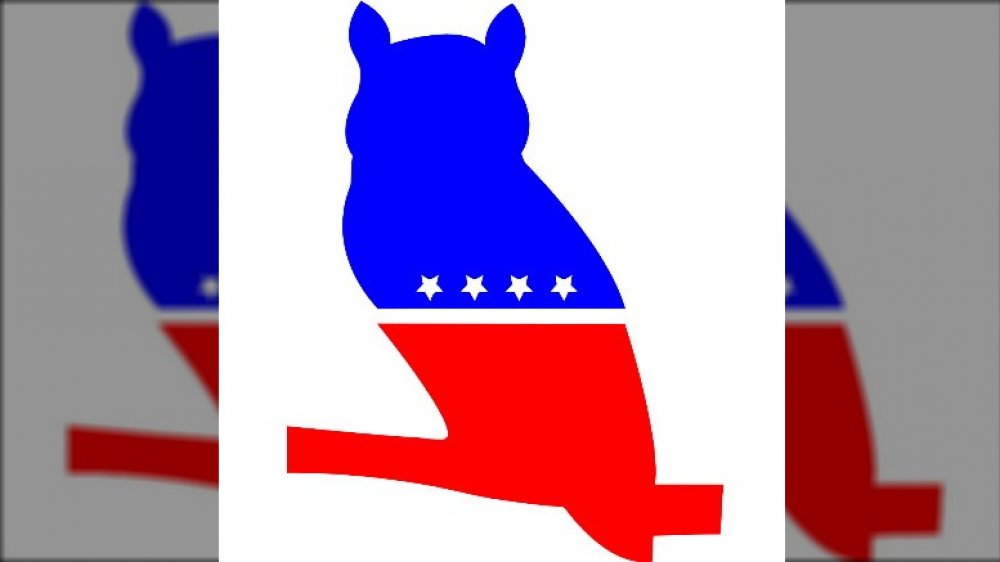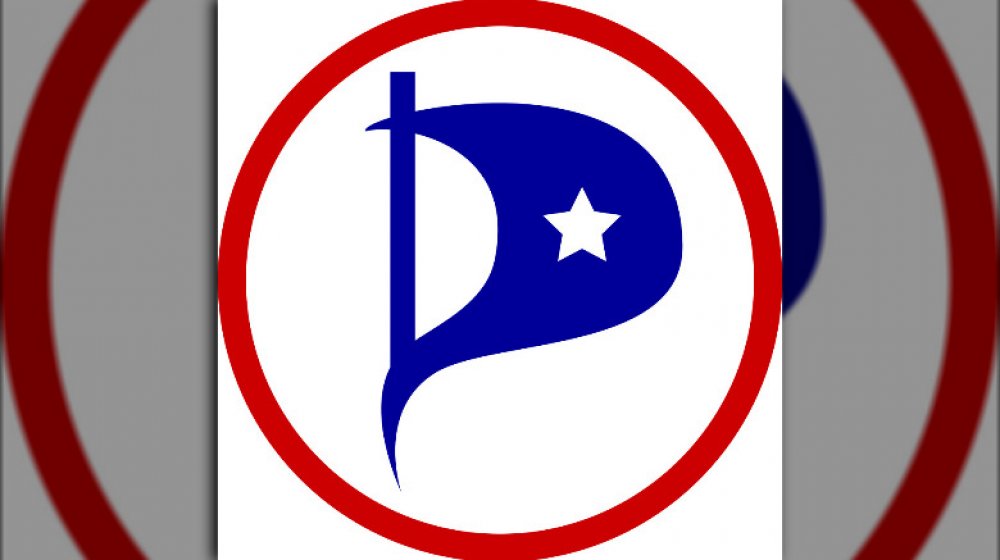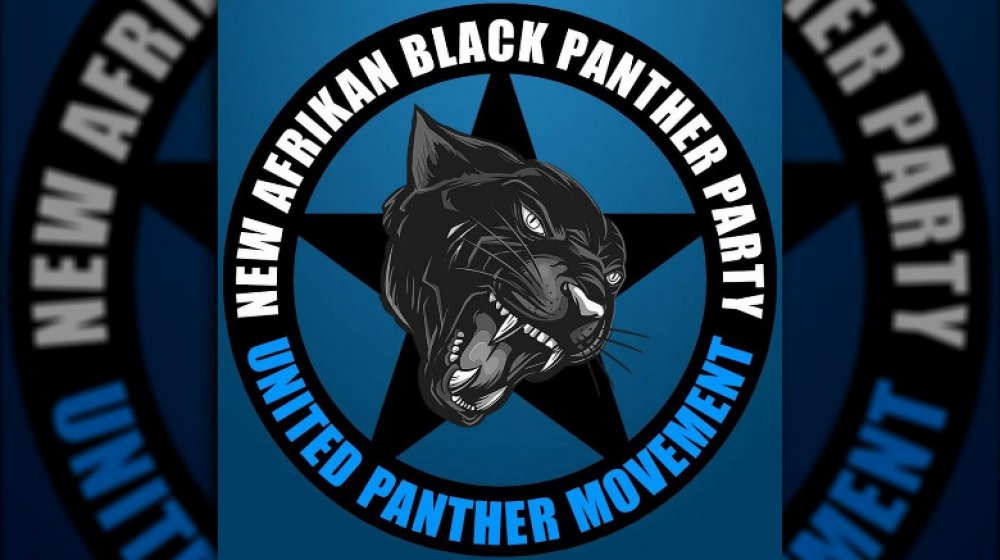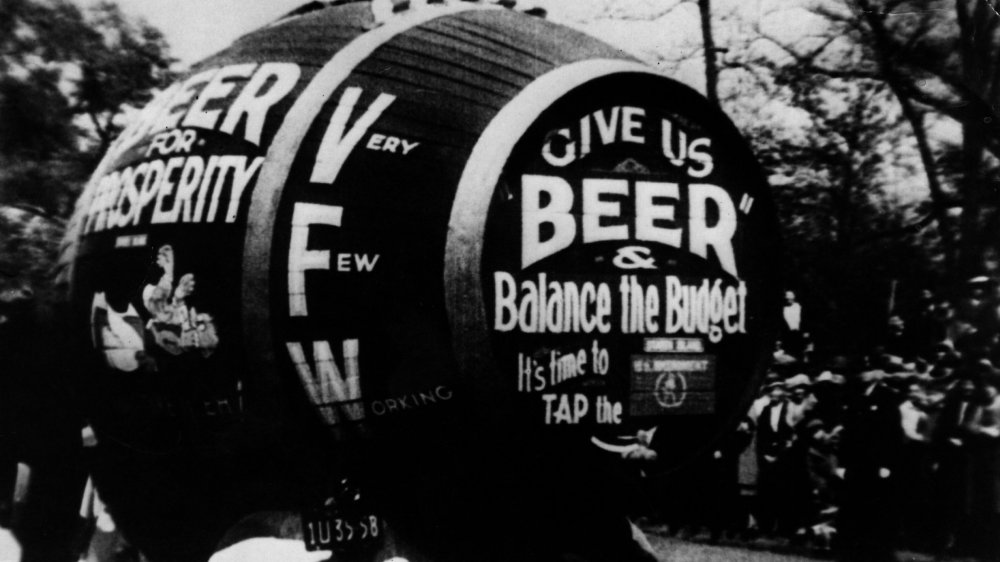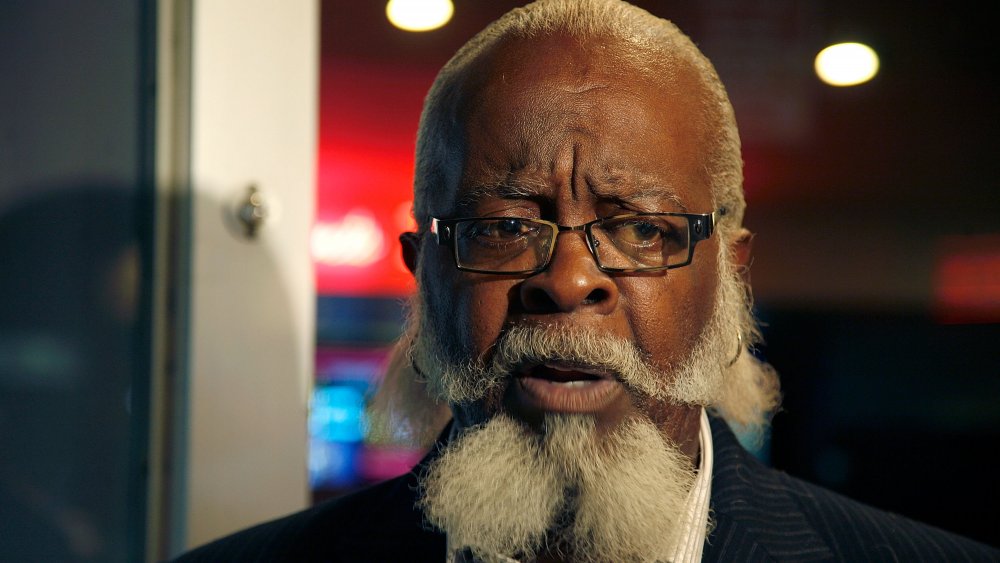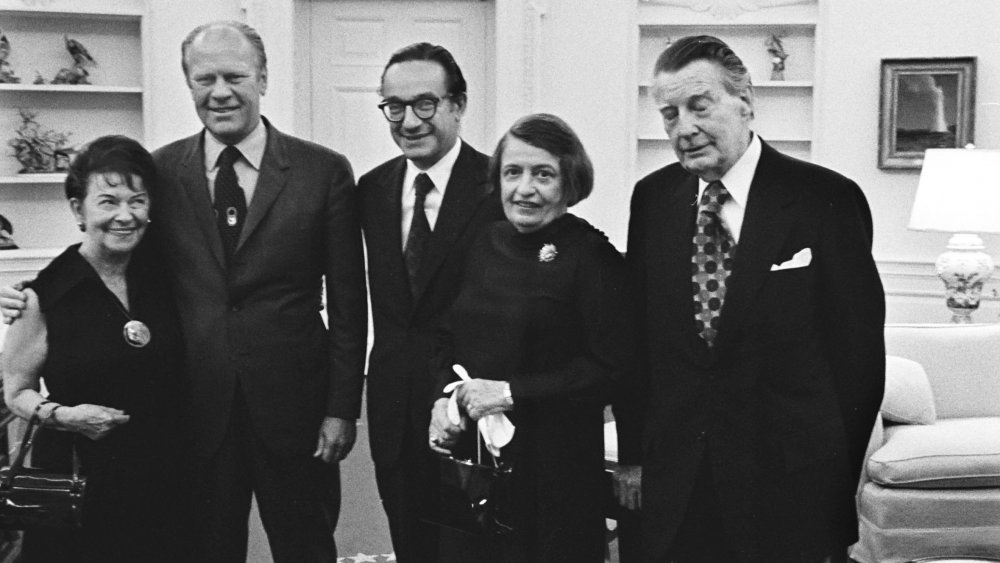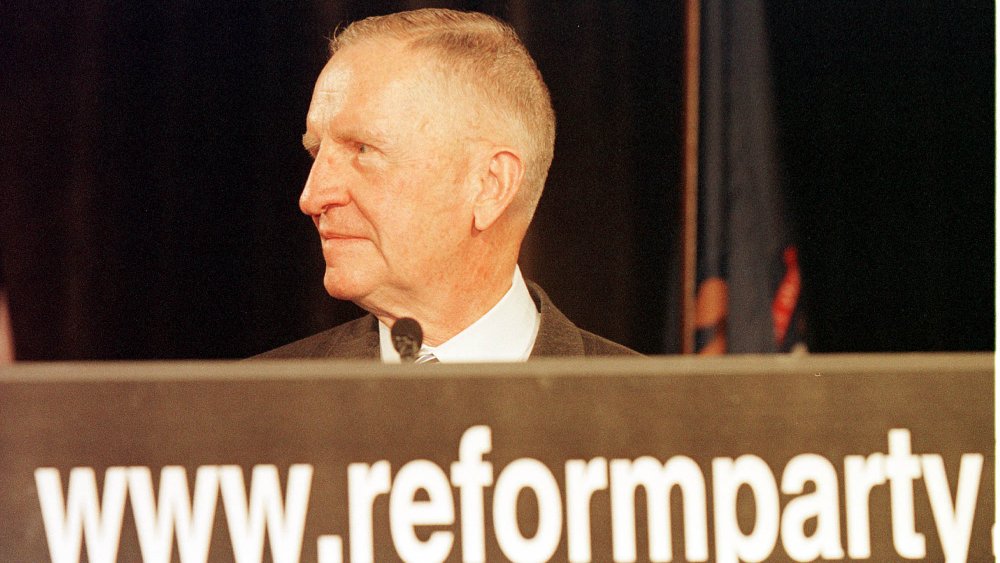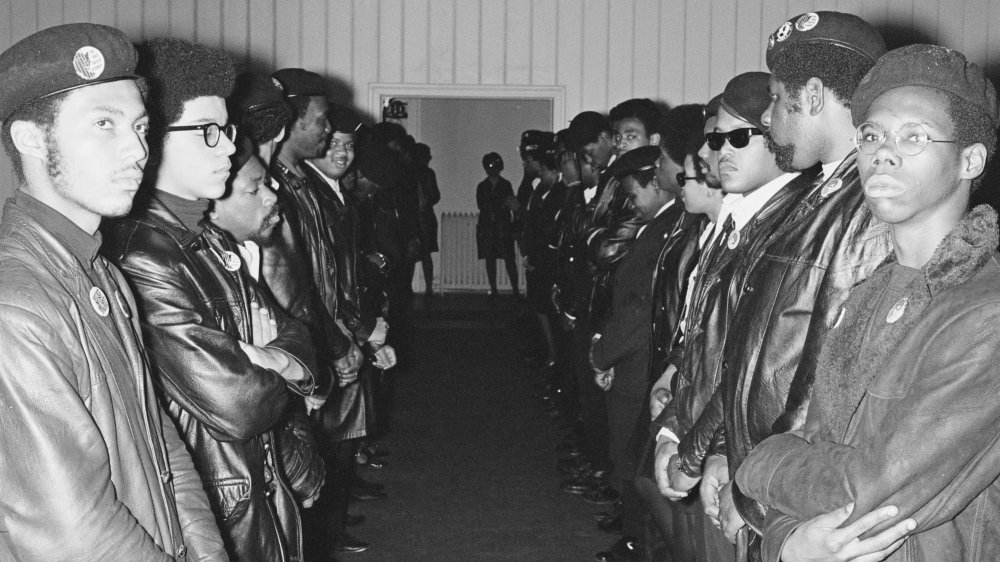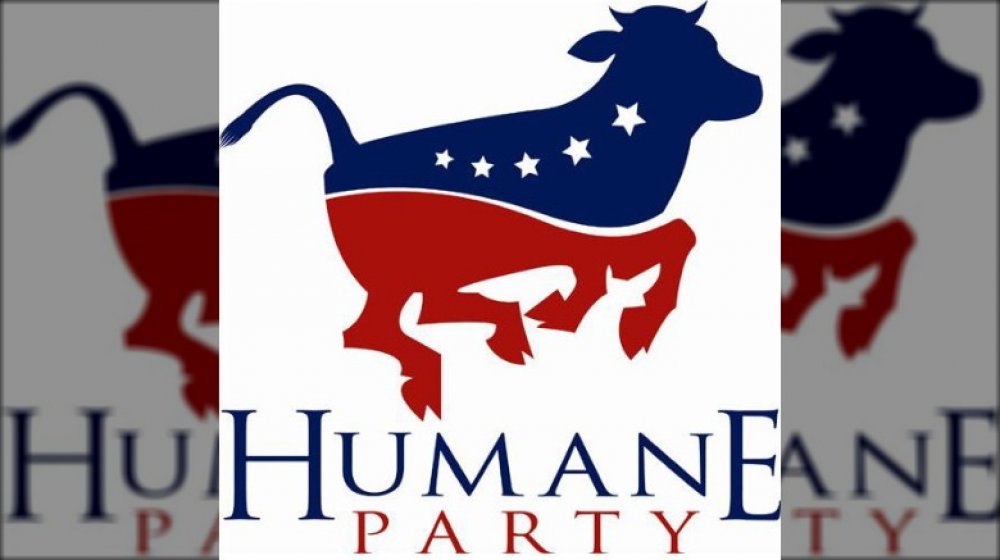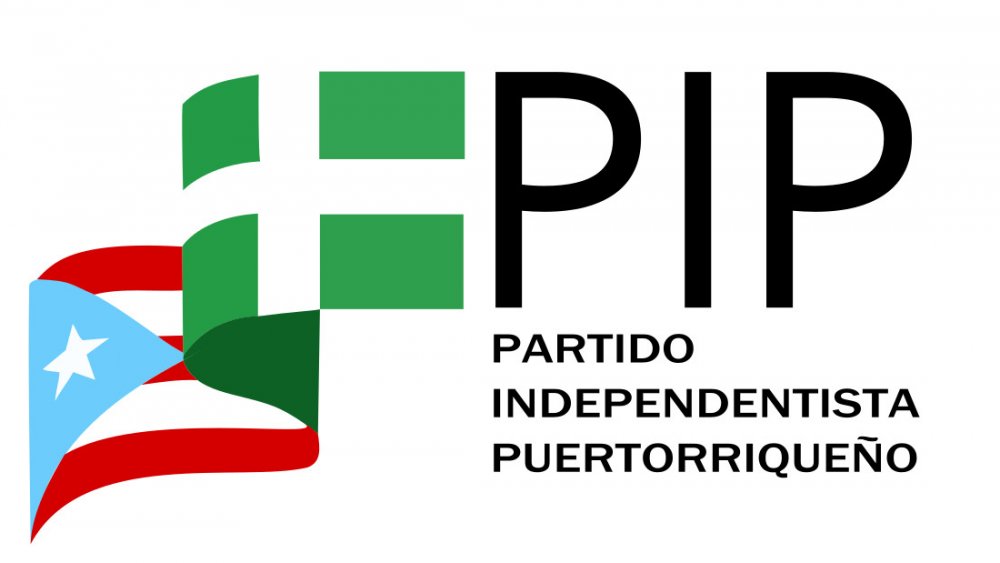American Political Parties You Probably Haven't Heard Of
The United States of America is a diverse country. That diversity isn't just about ethnicity or religion — our political world is a patchwork of different interests. Even our two major political parties, the Republicans and Democrats, are really coalitions of different special interests that exist on a spectrum of political philosophy.
Then there are "third parties," which traditionally don't get much attention — or traction with voters. You've probably heard of some of the larger alternative parties, like the Green Party or the Libertarian Party. Those parties have received millions of votes and can sometimes influence elections or even elect a few candidates. But part of what makes this country great is the freedom citizens enjoy to freely assemble, organize, and press for the political future they want to see. And that means there are hundreds of political parties in the United States, most of which you probably haven't heard of.
And just like the country that inspired them, these parties run the gamut from weird and wacky to disturbing and even scary. You might be surprised to discover that some of these political parties exist at all — and that some not only exist but are thriving.
The Constitution Party
You've probably never heard of the Constitution Party, which is only surprising because according to Ballotpedia, they're actually the fifth-largest political party in the country (after the Republican, Democratic, Green, and Libertarian parties). In the 2016 presidential election, the Constitution party received just over 200,000 votes, which was the seventh-largest vote haul that year. To put that in perspective, though, that's not even one percent of the total votes cast, and there were nearly 700,000 write-in votes that year. Also, Evan McMullin, who ran as an independent without any official party at all, got more than 730,000 votes.
The Constitution Party is a conservative party that split off from the Republicans in 1992, originally as the US Taxpayers' Party. Their defining issue is the sprawl of the US federal government. They believe that we should be constrained by a very "originalist" interpretation of the Constitution that requires all applications of law to be based on what the framers would have been thinking at the time (that is, the late 18th century). In other words, they're all about small government and the lower taxes that would allow.
The Constitution Party is still very active and has nominated a candidate for president in 2020: Don Blankenship, who was chairman and CEO of Massey Energy and, as The New York Times reports, was convicted of violating federal mine safety standards after an explosion at the Upper Big Branch mine in West Virginia in 2010.
The Modern Whig Party
No, it's not a secret fan club for the Afghan Whigs, but any modern party that links itself to a defunct 19th-century organization deserves to be known. As Time explains, back in the 19th century, the Whig Party was initially organized in opposition to President Andrew Jackson, who was a controversial and polarizing chief executive. The original Whigs were pretty successful, managing to elect a few presidents, two of whom died shortly after taking office: William Henry Harrison in 1840 and Zachary Taylor in 1848. The party collapsed in the 1850s, with many of its members joining the brand-new Republican Party.
As Slate explains, the Modern Whig Party was founded in 2007, largely by military veterans. It presents itself as a "middle-of-the-road" party for people who reject both the mainstream conservative (Republican) and liberal (Democratic) political platforms (as Slate puts it, "a Republican head with a Democratic heart"). The main reason for the resurrection of the very old-timey sounding "Whig" name is to underscore both the old-school American values they purport to champion and to stress the oppositional nature of their philosophy.
According to Ballotpedia, the Modern Whigs are not a ballot-qualifying party, though they have managed to win a few local elections around the country. The Philadelphia Tribune reported that a Modern Whig won a "minor office" in Philadelphia in 2013, for example.
The Pirate Party
First of all, admit it: When you hear someone is running for office on the Pirate Party ticket, you want to vote for them just because of the name. But the international Pirate Party movement is a real political party which has had some success around the world. As Time notes, in Iceland, the Pirate Party was formed in the aftermath of the 2008 global economic crisis. The Iceland Pirates rode a wave of anti-establishment sentiment to grab ten seats in Iceland's parliament, making them a legitimate party just a few years after their formation. And The New Republic notes that two European Pirate Party candidates managed to get elected to the European Parliament.
The American Pirate Party has a pretty narrow focus — it's kind of a one-issue party, in fact. That issue is a more transparent society with the free exchange of public information, including a drastic reform in copyright and patent law. That doesn't mean they're not a legitimate political party — plenty of parties have been formed over the years with extremely narrow aims. The Pirate Party has so far focused its energies on local politics. As Techcrunch notes, the long-term goal is get candidates into Congress, where they can actually influence legislation and policy.
It's slow going. Fox News reports that as of 2017, the Pirate Party had active chapters in California, Wisconsin, Florida, Georgia, New York, Oregon, and Washington.
New Afrikan Black Panther Party
The New Afrikan Black Panther Party — Prison Chapter is notable for two things. One, as the San Francisco Bay View notes, it's a direct continuation of the Black Panther Party – Prison Chapter, founded in 1971 by W.L. Nolen and George Jackson. And two, it's essentially a political party for prisoners, with a focus on improving prison conditions and fighting for racial justice.
The New Afrikan Black Panther Party began as a newsletter concerned with Amerindian spiritual issues. Edited by a man named Tom Watts, it evolved into a group focused on African-American culture, which further evolved into a Maoist organization based on the earlier ideas of the Black Panthers.
The party doesn't seem to have run any candidates in any elections, but as the party's co-founder, Kevin Rashid Johnson, writes in The Guardian, they have successfully used the court on several occasions to try and improve prison conditions and gain justice for prison abuses. Johnson has reportedly been held in isolation and routinely abused because of his refusal to perform mandatory work and his outspoken efforts to hold prisons and prison guards accountable. Even though this isn't a traditional political party, its influence in the prison system and its fight against institutional racism make it an important party nonetheless.
The Prohibition Party
Prohibition is shorthand for the 14-year period in this country when alcohol was illegal. As History reports, it began in 1919 with the passage of the 18th Amendment and ended in 1933 with the passage of the 21st Amendment. Generally speaking, Prohibition is remembered as a bad idea — a law that inspired the rise of organized crime and made millions of otherwise law-abiding citizens unhappy enough to break the law.
Not everyone takes such a dim view, though. In fact, there's a Prohibition Party active today that still opposes the sale and consumption of alcoholic beverages. And it should be taken seriously: As The Guardian reports, it's actually the oldest third party in the United States, formed in 1869 and in continuous operation ever since. And in the 2016 presidential election, the Prohibition Party candidate (Jim Hedges) received 5,617 votes (out of more than 136 million), so they're not totally without support.
Whereas the original version of the party once managed 270,000 votes (out of about 12 million) in the 1892 presidential election, Hedges represents the high-water mark for the modern incarnation of the Prohibition Party. He's also its most successful candidate, having been elected twice to the post of Tax Assessor. He ran unopposed.
The Rent Is Too Damn High Party
You probably already know who Jimmy McMillan is. If the name doesn't spark your memory, his iconic look probably will — as will his catchphrase, which is also the name of the political party he founded. As The Washington Post writes, McMillan is a perpetual candidate for office in New York City and State. Ballotpedia reports that he's run for mayor of New York City in 2005, 2009, and 2013, governor of New York State in 2006 and 2010, and the New York City Council in 2017.
But it was his 2010 run for governor that established his fame. McMillan was an entertaining presence at the gubernatorial debate in October 2010, and his repetition of the phrase "the rent is too damn high" garnered him national attention. As reported by The New York Times, this led to a surprisingly robust showing in the election, where McMillan (officially running as an independent candidate) garnered more than 40,000 votes.
That's less than one percent of the votes cast, but it's also the highest tally outside of the largest four parties. The Rent is Too Damn High Party remains a one-state party with a very narrow platform that stresses affordable housing (obviously), anti-discrimination, anti-gentrification, and job creation — but it's a party that has managed to influence local politics a lot more than most.
The Objectivist Party
The Objectivist Party was founded on February 2, 2008, by a guy named Tom Stevens. He chose February 2 because it's the birthday of author and philosopher Ayn Rand. You know her from her incredibly long novels Atlas Shrugged and The Fountainhead, which at least one person has tried to convince you to read in high school or college because it will change your life.
As HowStuffWorks reports, the Objectivist Party was inspired by Rand's philosophy of objectivism, which argues that individual happiness is everyone's moral purpose, thus making self-interest in a libertarian society the ideal. This translates to a small federal government that focuses on protecting its citizens from outside forces while allowing them to more or less act in their own self-interest.
While it's hard to take a political party based on two novels seriously, this is a legitimate organization that officially nominated Stevens for president in 2008 and 2012. In 2008, he only managed 755 votes, but in 2012, he cranked that up to more than 4,000. Stevens passed away in 2019, and the party hasn't registered a candidate for the 2020 election, so we may never know if that red-hot momentum was going to translate into five-digit vote totals this year.
The Reform Party
If you were alive and paying attention to politics in the 1990s, you totally know the Reform Party, though you may have forgotten all about it. It was founded in 1995 by businessman Ross Perot, who ran as an independent in 1992 and received an astounding 18.9 percent of the vote – nearly 20 million votes in all. That makes Perot the most successful third-party candidate in the modern era. Perot founded the Reform Party in 1995 as part of the ramp-up to his 1996 campaign. Perot was not quite as successful in 1996, winning eight million votes, but that's still pretty great for a third party.
As Politico reports, the Reform Party's story gets complicated after that. They initially allied with the Independence Party but split in the year 2000 when Pat Buchanan secured its nomination for the presidency. (Donald Trump briefly flirted with running for the presidency on their ticket that year as well). The Reform Party's biggest triumph was the election of former wrestler Jesse Ventura as governor of Minnesota — though as The New York Times reports, Ventura left the party shortly afterward.
The Reform Party is still chugging along. They got more than 33,000 votes in the 2016 presidential election, and they have candidates registered for this year's elections as well.
The American Freedom Party
The dark side of living in a free country is that you're not only allowed to hold some pretty awful opinions, but you're even allowed to create political parties around those awful opinions. Case in point: the American Freedom Party (AFP).
As CBS News reports, the American Freedom Party was established by racists who seek to shore up white supremacy in the United States. As the Southern Poverty Law Center reports, the party was originally called the American Third Position and was founded by lawyer William Daniel Johnson and well-known racist Kevin MacDonald in 2010. The goal was to fill a void in the white nationalist movement and try to get organized to run candidates for every office in the country.
In 2016, the American Freedom Party pivoted. According to Mother Jones, they saw Donald Trump's campaign as a way to get their horrifying ideas into mainstream politics and made an effort to soften their image. This worked pretty well — Johnson was actually named as a delegate for the Trump campaign in California, before being forced to resign when his link to the AFP was publicized. But Johnson announced that at least one other AFP member had been selected as a delegate.
The Black Riders Liberation Party
The Black Riders Liberation Party (BRLP) positions itself as a direct continuation of the iconic Black Panther Party founded by Bobby Seale and Huey Newton in 1966. Officially declared a separatist hate group by the Southern Poverty Law Center, they were explicitly founded to oppose white nationalism and to convince members of criminal gangs like the Bloods and Crips to redirect their energies toward revolution.
As reported by VICE, the original Black Panthers attempted to check police by organizing armed patrols that would follow the cops around. The BRLP engages in similar activities, relying on cameras instead of guns to try to reduce instances of police misconduct. They monitor arrests and will step in and get involved if they believe someone's rights are being violated. In the wake of Freddie Gray's death in Baltimore in 2015, the BRLP was accused by the Baltimore Police Department of organizing some of the criminal gangs in the city to "take out" police, which the BRLP denied.
The Black Riders Liberation Party isn't going to field any candidates anytime soon — they regard our entire capitalist system to be irreparably corrupt and dominated by white supremacy, so they're agitating for revolution.
The Humane Party
One undeniable fact of modern American life is that there's a political party for every possible belief system. All you have to do is look. And as Salon reports, there is, in fact, a political party dedicated to advancing the vegan lifestyle and animal rights.
Founded in 2009, the Humane Party isn't very big. (Salon estimates it has "hundreds" of members, mostly in California and New York.) In 2015, the party nominated Clifton Roberts to run for president, and in 2017, Roberts was nominated for the US Senate in California. He's also been nominated again for the 2020 election.
According to The Humane Herald (published by the Humane Party), another Humane Party candidate, Robert Mason, ran for congress in Texas in 2018. Mason admitted to Salon that "the party is still largely an ideal, a group of like-minded people" as opposed to a real political force, but polls are showing that more and more Americans are concerned about animal rights, which means that the Humane Party might have increasing influence in future elections. It's not entirely about animal rights, though. They do have a complete platform, including planks concerning requiring a balanced budget, reform of the electoral system, and environmental issues.
Various state independence parties
If you didn't sleep through the entirety of your school years, you probably know that the United States isn't so much a cohesive country as a bunch of states that were, you know, united. Many states have a history that begins long before they became part of this country, and some wouldn't mind getting back to being independent — and have political parties trying to accomplish just that (despite the fact that a bunch tried that in 1860 and it did not go well for literally anybody).
As CBS News reports, the Alaskan Independence Party has existed since the 1970s and works to secure a legal vote on Alaska seceding from the United States. The Puerto Rican Independence Party (PRIP) has been in existence since the 1940s. Britannica notes that the PRIP won nearly 20 percent of the vote in 1952, but it has slowly lost support over the years. Although The New York Times reported in 1972 that the president of the PRIP predicted they would declare independence by 1976, in the most recent elections, they only managed two percent of the vote.
As Business Insider notes, the California National Party is trying to make a "Calexit" happen the slow and steady way, by getting folks elected who can then somehow trigger an official secession request, or something. And as The Hill reports, the New Hampshire Liberty Party, which argues that the state should secede from the union, ran a candidate for president in 2016.
